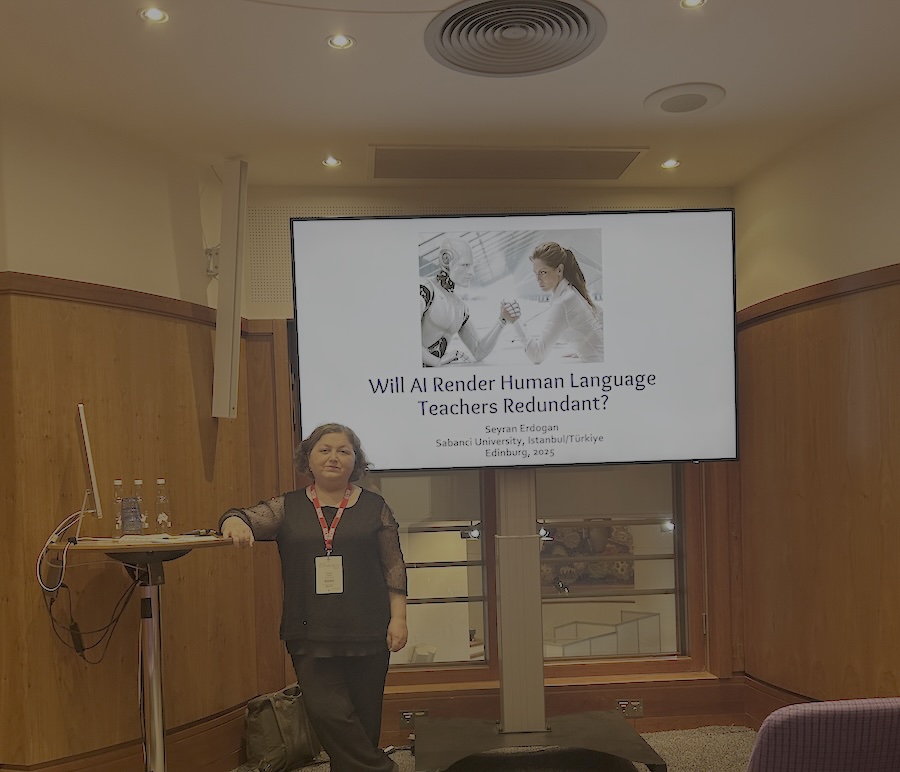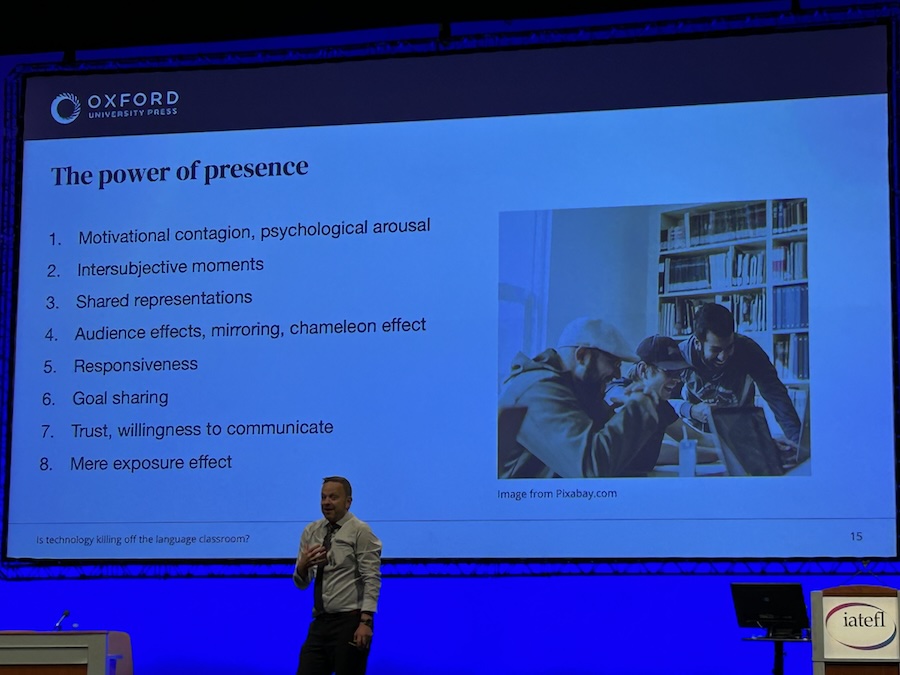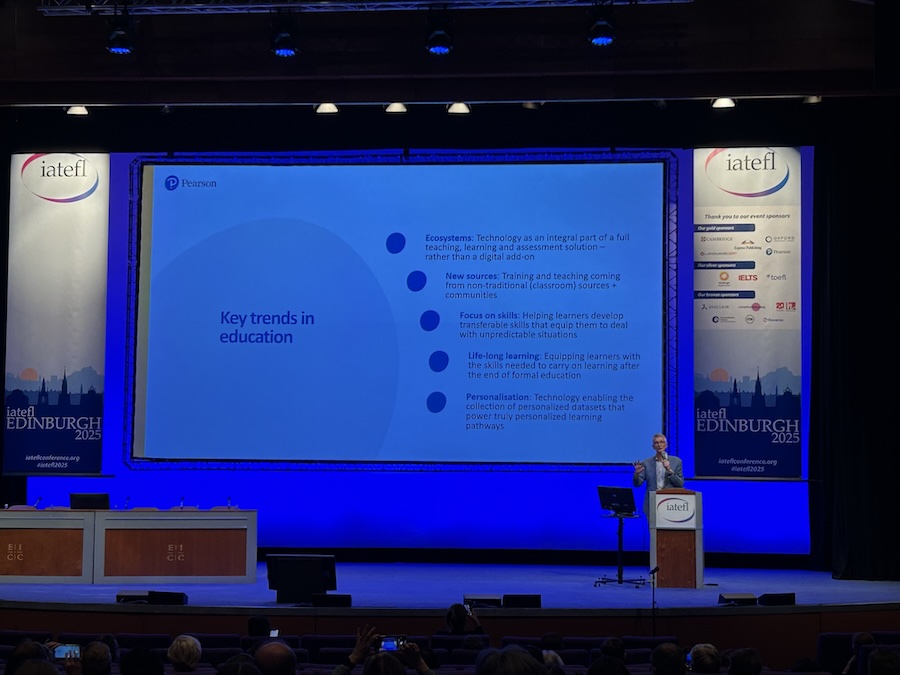Reflections from IATEFL 2025

Reflections from IATEFL 2025
By Seyran Erdoğan
The IATEFL Conference, held from 7 to 11 April 2025 in Edinburgh was one of the most satisfying
conferences I have attended, with a wide selection of sessions on topics of interest in ELT today. I
had the chance to attend many thought-provoking sessions, but I can only summarize a couple here.
Unsurprisingly, Artificial Intelligence (AI) emerged as the most dominant theme, with 59 sessions
focusing on its applications in ELT. One session I found particularly interesting was entitled ‘Is technology
killing off the classroom?’ presented by Nick Thorner. Thorner started his session by giving examples of
language learning/practice platforms and apps, which make language learning easier and possibly more
enjoyable. A fascinating example he shared was Noun Town, a virtual town in which learners can walk
around, talk to others and even receive feedback on their pronunciation in real time.
Thorner listed some other examples and argued that these apps or platforms are especially great for
learners with social anxiety, and then questioned whether individuals really thrived online. He then
went on to explain that the majority of people are likely to responds to physical presence and that one
benefit of classroom learning is relatedness. When there is relatedness, there is desire to integrate,
which results in participation. In the second part of his talk, Thorner made suggestions as to how to
create a healthy community in the classroom environment: by stopping cliques, managing energy levels,
stopping people dominating, resolving disputes and stopping negativity. He also suggested that, as
teachers, we can replicate some characteristics of strong groups, like football clubs, in the classroom to
boost relatedness and eventually enhance motivation and participation.

Thorner concluded his session by stating that although online spaces hold enormous potential for
learning, they can create ‘relatedness deficits’ that can diminish motivation. He added that a healthy
classroom community will inspire learners to ‘embrace’ learning.
Another stimulating session I attended was entitled ‘Language Learning, Teaching and Assessment in
2030 and beyond’ presented by Mike Mayor. Mayor started his session by sharing some research from
the world of language learning. Here are some results from the studies he shared:
- Language learning is not dying.
- Travel is still the main purpose of language learning.
- Instant communication through apps is important.
- AI is seen better as a language teacher.
- Classroom learning has not changed.

Mayor, then, presented a list of white collar jobs that will be taken over by AI, and he did not include
teaching in the list, on one condition: ‘AI will not replace teachers, but teachers who do not embrace AI
will be at risk of being replaced.’ With that came the inevitable note that teachers have to upskill if they
want to keep their jobs.
My own presentation, entitled ‘Will AI render human language teachers redundant?’, was on the same
topic. My study had three input sources: a literature review, a survey conducted in SL and responses
from ChatGPT on the same set of four questions:
- What does AI do better than a human language teacher?
- What do human language teachers do better than AI?
- Will AI render human language teachers redundant?
- What can language teachers do to stay relevant?
Conclusions derived from all three sources elicited the same point: AI is fast and efficient, but it lacks
the human aspect that underpins effective teaching.
